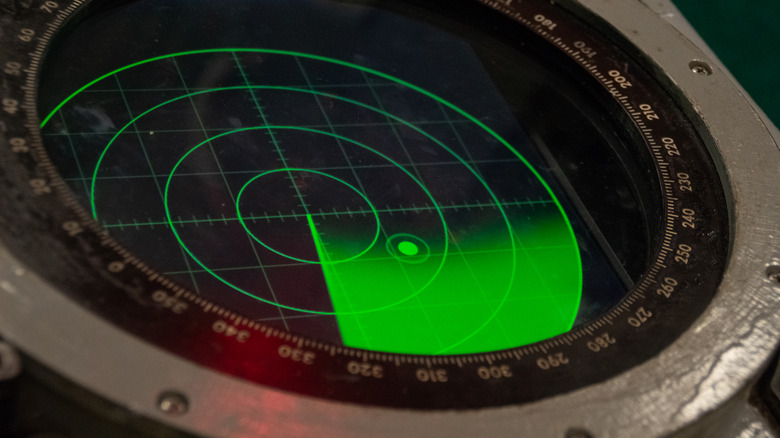Why It's So Hard To Find Submarines In The Ocean Like The Titan
On June 18, 2023, Titan, a tourist submarine, suddenly went missing, and searchers have been desperately hunting for the elusive craft in the North Atlantic ever since, according to CBS News. They're on a tight deadline before the captain and four passengers who paid $250,000 each to get a look at the wreck of the Titanic, run out of air. The Coast Guard, which is leading the international rescue mission, has a tough job.
Besides the typical problems of sea rescues — things like icy cold water, rapidly changing weather conditions, and pitch-black water at night — there are other issues at play, such as radar not being able to penetrate through the ocean's salt water, per The New York Times and Forbes. Even using sonar (sound navigation and ranging), which can penetrate the water using sound waves, isn't an easy fix since a "specialized" technique using a "very narrow beam" would be required to find the small submersible at a depth of 13,000 feet, which could take too long, forensic geoscientist Jamie Pringle told Forbes.
No radar, and sonar isn't a sure bet
While radar works well to track a ship on top of the ocean, below the waves, it's nearly useless. Radar uses electromagnetic waves, and the ocean — due to its massive size — quickly absorbs the waves, which are only able to penetrate a few feet deep, according to the Carnegie Museum of Natural History. Additionally, salt water is "mostly opaque to electromagnetic radiation," according to JHU Engineering.
Rescuers are using sonar buoys that can detect sounds up to 13,000 feet down in the hunt for Titan, per CBS News, but even this technology is far from a sure bet. The Coast Guard reported they had heard underwater noises using sonar, but retired Rear Admiral Chris Parry of the British Navy told Sky News that there's "a lot of banging in the ocean" and that he was "worried in case these spurious sounds may actually be taking people away from where Titan might be."
Rescue is even harder
Chris Parry told Sky News that what's left of the Titanic wreck itself could be a possible source of the noises due to its "deteriorating structures." Coast Guard Rear Admiral John Mauger seemed to acknowledge the noise wasn't necessarily coming from the submarine, calling the site "incredibly complex" and full of metal objects, per CBS News. Naval experts are trying to determine the exact source of the noise.
Even if rescuers are able to locate the Titan, getting it back to the surface will be another huge challenge. According to The New York Times, if the submarine is on the ocean bottom, the amount of pressure pushing down on it is equivalent to "a tower of solid lead as tall as the Empire State Building." They would need to use remote-control submersibles called ROVS to determine its exact position before trying to attach cables to haul it up to the surface while avoiding any obstacles in their path, per The Guardian.


